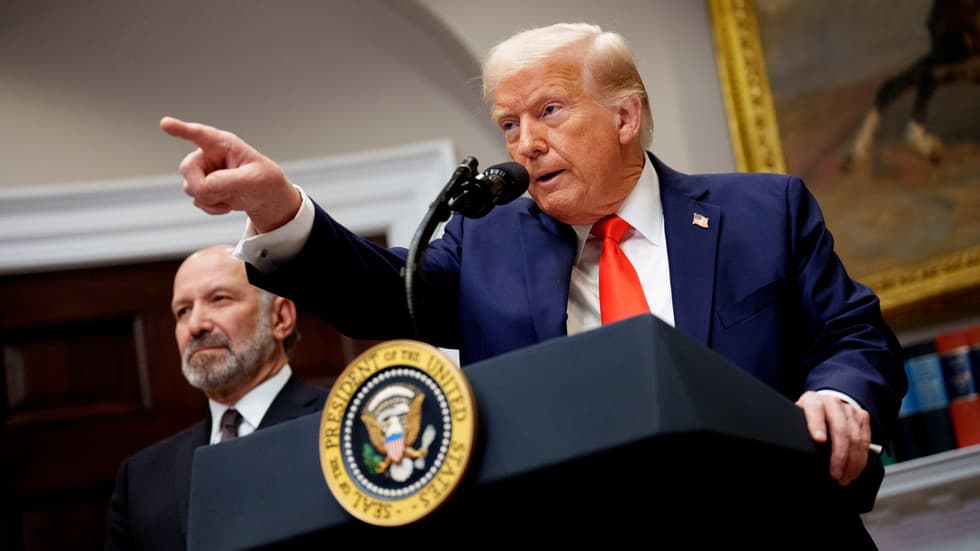Global Shock
Futures Tumble as Trump Declares 'Economic Independence' with Sweeping Tariff Plan - Israel slapped with 17% Tariff
Reciprocal tariffs on dozens of nations mark a bold pivot in U.S. trade policy — but markets recoil as global backlash brews

In a dramatic Rose Garden address on April 2nd, President Donald Trump unveiled what he called a "Declaration of Economic Independence" — a sweeping tariff plan that imposes reciprocal trade levies on dozens of countries, with rates ranging from 10% to 50%, and a flat 25% on all automobile imports.
“For decades, our country has been looted, pillaged, raped and plundered by nations near and far, both friend and foe alike. American steel workers, auto workers, farmers and skilled craftsmen -- we have a lot of them here with us today. They really suffered gravely.”, declared Trump.
Dubbed “Liberation Day,” Trump said the move would mark the rebirth of American industry.
“April 2, 2025, will forever be remembered as the day America’s destiny was reclaimed,” he proclaimed. we’ve been looted and plundered for decades — but no more.”
A Tariff Revolution, by Design
The U.S. will now match or mirror the average tariffs other nations impose on U.S. goods. That means countries like Vietnam (46%), Cambodia (49%), and Lesotho (50%) will face equivalent levies on their exports to America. Major trading partners were hit hard too: China (34%), EU (20%), Japan (24%), and South Korea (25%).
To the relief of some U.S. manufacturers and supply chains, Mexico and Canada were spared — at least for now — due to compliance with USMCA trade terms.
Trump also confirmed a baseline 10% tariff on all imports from countries not otherwise listed, a figure slightly lower than economists’ worst-case scenario of 15–20%. However, automobiles and key auto parts will face a blanket 25% duty effective April 3rd, regardless of origin (with exceptions for certified USMCA content). Israel in case you wondered was hit with a 17% tariff on its exports.
Futures plunged following the declaration as analysts warn the tariffs, though tailored, may still drive up consumer prices, invite foreign retaliation, and disrupt global supply chains.
Foreign governments reacted swiftly. The EU vowed proportionate countermeasures, with France pushing for penalties on U.S. tech giants. Thailand warned of a $7–8 billion hit to its economy. China denounced the tariffs as “unreasonable and harmful” to global markets. Even long-standing allies like the UK and Canada expressed confusion or concern.
Yet Trump remained defiant: “If you want zero tariffs — build in America. It’s that simple. To all the foreign leaders preparing to call me asking for exemptions: drop your own tariffs first."
Trump has hinted that tariffs on pharmaceuticals, semiconductors, and lumber are coming soon. He’s also threatened secondary tariffs on nations that purchase Venezuelan oil — which could heavily impact China, Venezuela’s largest oil buyer.
Meanwhile, trade experts warn of cascading economic consequences if tit-for-tat escalations begin. Goldman Sachs estimates the effective tariff rate on China could now reach 60%. JPMorgan warns that if blanket tariffs rise further, the S&P 500 could fall 2–3%, with EU auto earnings slashed by 25%.